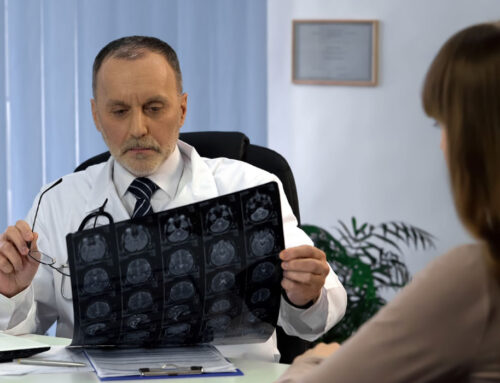Epidermoid cysts are a common occurrence on the skin’s surface, often causing confusion due to misconceptions about their contagious nature. In this article, we will explore the world of epidermoid cysts, debunking myths and providing accurate information about their contagiousness, causes, diagnosis, and treatment.
Understanding Epidermoid Cysts
Epidermoid cysts, sometimes referred to as sebaceous cysts, are non-cancerous growths that develop within the skin. These cysts originate from the epidermal cells, which are the outermost layer of the skin. While they can appear anywhere on the body, they are commonly found on the face, neck, back, and genital area.
Characteristics and Appearance
Epidermoid cysts are characterized by their distinctive appearance. These growths often resemble small, rounded bumps beneath the skin’s surface. Their texture can vary, ranging from firm to soft, depending on the contents within the cyst. Some cysts may have a central opening called a punctum, which can release a white, cheesy material upon squeezing.
Complications and Risks
While epidermoid cysts are generally benign, complications can arise in certain cases. One common complication is inflammation, which can cause the cyst to become red, tender, and painful. Infection is another concern, especially if the cyst is punctured or ruptured. Infected cysts can lead to increased pain, swelling, and the development of pus.
Although rare, an epidermoid cyst can develop into a condition called an abscess. This occurs when the cyst becomes severely infected and forms a pocket of pus. Abscesses require prompt medical attention and drainage to prevent further complications.
Debunking Myths
One of the most persistent myths about epidermoid cysts is that they are contagious. However, it is important to clarify that epidermoid cysts are not contagious in the traditional sense. They do not spread from person to person through contact or exposure. These cysts develop as a result of internal factors within an individual’s body and are not caused by external pathogens such as viruses or bacteria.
Understanding the Development of Epidermoid Cysts
To better understand why epidermoid cysts are not contagious, it’s important to explore their development. These cysts form when epidermal cells move deeper into the skin and start to multiply. This process often occurs due to hair follicle blockages, skin trauma, or genetic predisposition. As the cells continue to accumulate, a sac filled with keratin (a protein found in skin, hair, and nails) forms beneath the skin’s surface, leading to the characteristic appearance of a cyst.
Diagnosis and Proper Medical Evaluation
Given the prevalence of misconceptions about epidermoid cysts, it’s crucial to stress the importance of seeking professional medical evaluation for any unusual growths on the skin. A dermatologist is a medical expert who specializes in diagnosing and treating skin conditions, including epidermoid cysts.
During a medical evaluation, the dermatologist will conduct a thorough examination of the cyst, often involving visual inspection and palpation. In some cases, they may recommend imaging tests, such as ultrasound, to gain a clearer understanding of the cyst’s composition and location.
Treatment Options for Epidermoid Cysts
Treatment for epidermoid cysts is determined by various factors, including the cyst’s size, location, and whether it’s causing discomfort. Here are some common approaches:
Observation: If the cyst is small, painless, and not causing any issues, a dermatologist may recommend monitoring it without intervention.
Drainage: For cysts that are inflamed or infected, a dermatologist may drain the cyst by making a small incision and removing the contents. This procedure can provide relief from pain and prevent further complications.
Surgical Removal: Larger cysts, those causing discomfort, or cysts that have a tendency to recur might require surgical removal. This is a minor surgical procedure performed under local anesthesia.
Injection of Medication: In some cases, a corticosteroid injection can be administered to reduce inflammation and help shrink the cyst.
Laser Therapy: Lasers can be used to remove the cyst’s contents and encourage healing. This option is often considered for cysts on the face.
Epidermoid Cyst Treatment in Newport Beach and Orange County
For individuals seeking effective treatment for epidermoid cysts, Newport Beach and Orange County offer access to experienced medical professionals. Treatment options may include monitoring the cyst’s growth, draining the cyst if it becomes painful or infected, or surgically removing the cyst if necessary.
Conclusion
In summary, epidermoid cysts are not contagious. They are non-communicable growths that develop within an individual’s body due to internal factors. While their appearance can be alarming, it’s important to rely on accurate medical information and seek professional evaluation for proper diagnosis and treatment.
For those in Newport Beach and Orange County, seeking guidance from qualified dermatologists ensures accurate diagnosis and appropriate treatment options. Remember, professional medical advice is essential for understanding and addressing any skin concerns. Don’t hesitate to reach out to the experts at Robert Louis MD. Contact them at (949) 383-4185 for a thorough evaluation and personalized treatment plan.



















